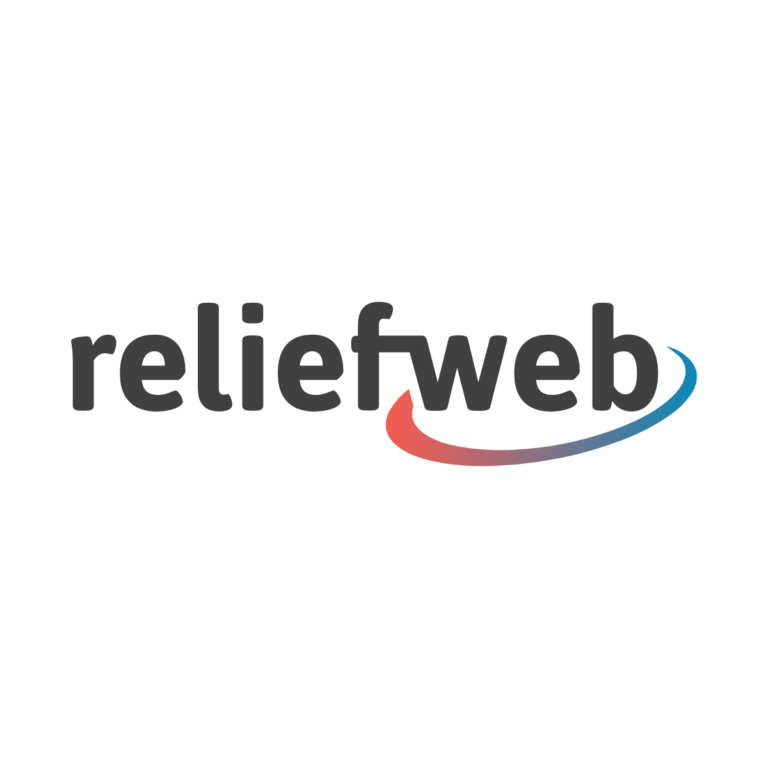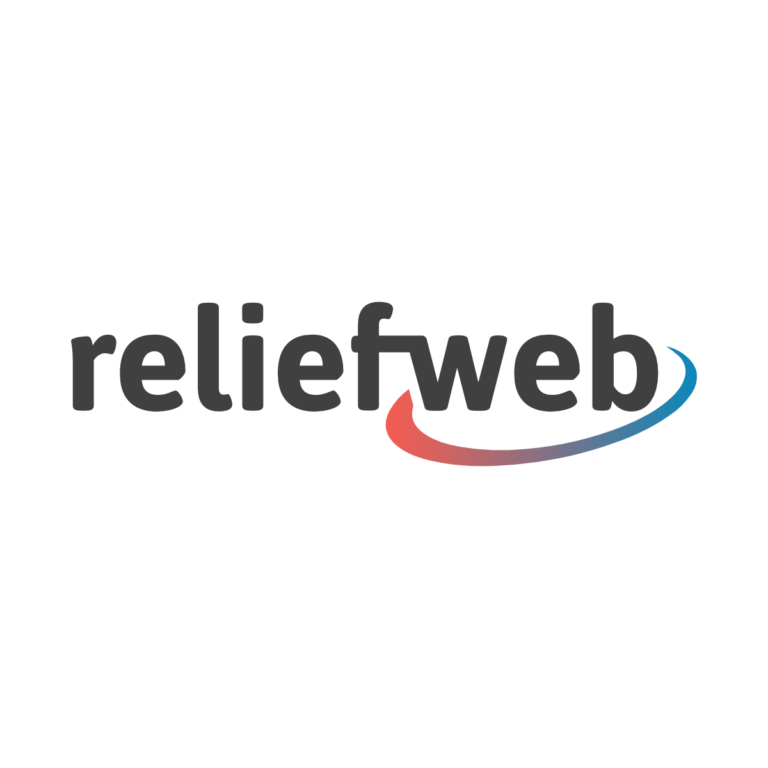ALIMA, the international medical NGO with a human face, which places at the heart of its model the co-construction of projects and professional paths
ALIMA PRESENTATION
ALIMA’S SPIRIT: ALIMA’s purpose is to save lives and provide care for the most vulnerable populations, without any discrimination based on identity, religion, or politics, through actions based on proximity, innovation, and the alliance of organizations and individuals. We act with humanity and impartiality in accordance with universal medical ethics. To gain access to patients, we undertake to act in a neutral and independent manner.
Our CHARTER defines the VALUES and PRINCIPLES of our action:
- Putting the Patient First
- Revolutionizing humanitarian medicine
- Responsibility and freedom
- Improve the quality of our actions
- Placing trust
- Collective intelligence
- Environmental responsibility
ALIMA promotes and defends the principles of fundamental human rights. ALIMA has a zero-tolerance approach towards those guilty of acts of gender and sexual violence as well as towards inaction in the face of alleged or proven acts of violence. The protection of those benefiting from and impacted by our intervention is our top priority in everything we do. Everyone collaborating with ALIMA is committed to:
● Respect the charter, the code of conduct, the institutional policies including the policy of protection against abuse of power and sexist and sexual violence, the policy of prevention of corruption and fraud;
● Report any violation of the policies, framework documents, and procedures to a superior, to a referent.
CARING – INNOVATING – TOGETHER:
Since its creation in 2009, ALIMA has treated more than 7 million patients and today deploys its operations in 12 African countries. In 2020 we developed 67 humanitarian medical response projects to meet the needs of populations affected by conflicts, epidemics, and extreme poverty. All of these projects are carried out in support of national authorities through nearly 357 health facilities (including 45 hospitals and 312 health facilities). Whenever possible We work in partnership with local NGOs to ensure that our patients benefit from the best and most relevant expertise wherever it is, whether within their own country or in the rest of the world. In addition, to improve the humanitarian response, we are carrying out operational and clinical research projects, particularly in the field of the fight against malnutrition and viral hemorrhagic fevers.
ALIMA’S TEAM: more than 2000 people are currently working for ALIMA. The field teams, closest to the patients, receive their support from coordination teams generally based in the countries’ capitals. These receive support from the 4 desk teams and the emergency and opening team based at the operational headquarters in Dakar, Senegal. The Paris and New York teams are actively working to raise funds and represent ALIMA. The rest of the ALIMA Galaxy includes individuals and partner teams working on behalf of other organizations such as medical NGOs BEFEN, ALERT Health, SOS Doctors / KEOOGO, AMCP, research organizations PACCI, and INSERM, Bordeaux or Copenhagen Universities, the INGO Solidarités International, and many others.
COUNTRIES WHERE WE WORK: Mali, Burkina Faso, Central African Republic, Nigeria, Niger, Chad, Democratic Republic of Congo, Cameroon, Guinea, South Sudan, Mauritania, Senegal and Sudan.
THE WORK WE DO covers: Malnutrition, Maternal Health, Primary Health, Pediatrics, Malaria, Epidemics (Ebola, Cholera, Measles, Dengue, Lassa Fever), Hospitalization, Emergencies, Gender-Based Violence, Opening / Closing.
ALIMA in NIGERIA
The humanitarian crisis in Nigeria’s northeast and the Lake Chad region is one of the most severe ongoing crises in the world, now entering its ninth year and showing no sign of abating.
In 2021, at least 8.7 million people in need of urgent humanitarian assistance in the worst-affected states of Borno, Adamawa, and Yobe. Up to 5.1 million people risk being critically food insecure during the next lean season (June – August 2021), a level similar to 2016-2017 when famine was looming over Borno State.
Nigeria is now facing a second wave of COVID-19 infections. Borno, Adamawa, and Yobe states have recorded new cases. Aid actors are intensifying actions and prevention measures
Despite challenges including humanitarian space reduction, aid workers had already provided around 5 million people with life-saving assistance in Borno, Adamawa, and Yobe states in 2020.
Conflict, explosive remnants of war, and insecurity have cut people off from their main means of livelihoods-farming and fishing. This causes major food insecurity in northeast Nigeria, which COVID-19’s effects on incomes have exacerbated: despite good crop yields, food insecurity is rising. Findings of the October 2020 Cadre Harmonisé (CH) analysis projected that about 5.1 million people in the three states will be food-insecure in the lean season between June and August 2021 – a 19% and 34% increase in 2020 (after COVID-19 June CH Update) and 2019 figures respectively. According to the Nutrition and Food Security Surveillance Round 9, conducted in October 2020, the level of acute malnutrition increased in all three states compared to 2019. Global acute malnutrition (GAM) rates of 10.7% were recorded in Borno, 7.5% in Adamawa, and 13.6% in Yobe. According to the survey, several LGAs had high pockets of global acute malnutrition above the 15% threshold (emergency phase), including Gubio, Magumeri, Mobbar, and Bayo in Borno State and all LGAs in northern Yobe. Movement restrictions and insecurity continue to hamper the ability of IDPs, returnees, and the host communities to access basic services, livelihoods, and land for farming and grazing. This means that more people will rely on humanitarian aid to survive in 2021.
In 2017, ALIMA continued to implement projects in Muna Garage in Jere LGA, where ALIMA performs general consultations for children under 5 and provides Sexual and Reproductive Health (SRH) to pregnant and lactating women (antenatal and postnatal consultations). An Outpatient Therapeutic Feeding Program (OTP) is also available for children under 5 suffering from severe acute malnutrition (SAM) in the clinic, where women and caretakers are trained to screen their children for malnutrition using the MUAC tape.
In Maiduguri MC, where ALIMA is working in partnership with the University of Maiduguri Teaching Hospital (UMTH), the Inpatient Therapeutic Feeding Center (ITFC) manages children under 5 suffering from SAM with medical complications in a 50-bed capacity building.
In December 2020, ALIMA conducted a needs assessment survey in the north of Yobe where a high level of acute malnutrition was recorded by the nutrition sector. The results of this survey prompted ALIMA to open a nutrition and health project covering the Kasasuwa LGA, one of the most affected LGAs, and where there was a gap. This project started in May 2021 and fund by ECHO aims to support Karasuwa health facilities and improve access to nutrition and health services including pediatric healthcare and reproductive health. ALIMA also supports COVID-19 vaccination in Borno and Yobe with a focus on the most vulnerable.
In parallel, ALIMA is opening an emergency nutrition project in Katsina state and is present in Owo state since 2018 for Lassa fever response and research. In recent years, Nigeria was hit by some of the worst Lassa fever (LF) outbreaks recorded so far. Since 2018, ALIMA has been working with the Nigeria Centre for Disease Control, the State Ministry of Health, and the Federal Medical Hospital (FMC) of Owo to help in the diagnosis and management of suspected and confirmed Lassa Fever cases.
In addition to prevention and case management, the project is also involved in research activities via the CORAL platform (ALIMA/Inserm 1219 Bordeaux) as it has developed an observational cohort study since 2018 (LASCOPE) to describe the clinical, biological course, management and outcomes of hospitalized patients with a diagnosis of confirmed Lassa fever. It has also initiated (in 2021) a therapeutic phase II clinical trial (SAFARI) in partnership with BNITM, a German research institute. The aim of the clinical trial is to assess the safety and efficacy of the antiviral drug against the standard ribavirin treatment. It is an important step toward a phase III trial to identify an efficient drug against Lassa fever in the future.
POST TYPOLOGY
Mission Location:
● Mission Location: Owo, Ondo State, Nigeria
Management lines:
● Line Manager:
▪ Head of Mission
● Line Management
▪ Project management team
● Functional Manager
▪ Mission Coordinators: LogCo, HRCo, MedCo, FinCo
▪ Research Coordinator (ResCo)
PROTECTION OF BENEFICIARIES AND COMMUNITY MEMBERS
Level 3: As part of his/her duties, the job holder will visit programs and come into contact with children and/or vulnerable adults. Therefore, a criminal record check or a certificate of good conduct will be required. In situations where the impossibility of providing a criminal record or a certificate of good conduct is found, a declaration of honor will be requested.
MISSION AND MAIN ACTIVITIES
Under the supervision of the Head of Mission and international Research Coordinator, the Project Coordinator is responsible for ALIMA’s operational and research interventions within the framework of the project. In close collaboration with the team, he/she defines the project’s priorities and objectives and establishes a plan to achieve them. In order to do so, he/she reviews data on population health and humanitarian needs, the context, the humanitarian issues at stake, and the risks and constraints associated with the context, and then assesses human and financial resource needs. In addition, he/she coordinates the implementation of the projects, in close collaboration with the medical coordinator, the international research coordinator, and the Head of Mission, in order to ensure the effective achievement of the objectives and also to improve the needs of the target population as well as the humanitarian situation.
Finally, he/she ensures compliance with procedures of ALIMA, the donor, National protocols, and the Research SOPs & protocols. He/she is the interface between the coordination & Research teams and the field team that he/she supervises and represents ALIMA with the local interlocutors. He/She will ensure the smooth running and daily management of the research projects in all their aspects: scientific representation, management of staff dedicated to clinical research activities, control and quality assurance of data collection, respect of protocols and procedures, supervision of internal monitoring and implementation of external data monitoring, participation in the organization and implementation of proximity training of clinical research staff. He/She is the guarantor of the security of ALIMA’s operational and research activities in the field as well as of the security of the team on the ground. He/She supervises and leads the field team and facilitates its participation in the project dynamics.
I- Security analysis and management
✔ He/she is responsible for monitoring and producing an analysis of the environment in which the operational and research activities are located: local political context (in Ondo state and in the intervention sites; Owo LGA) and providing regular updates on the security context in the environment of intervention;
✔ He/she enforces the security policy set by the coordination team and formalizes it in the security guideline distributed to the project teams;
✔ He/she monitors the evolution of the local situation by encouraging the participation of the team he/she supervises in this task;
✔ Evaluates the risks and constraints, and proposes an adapted strategy and action plan in case of new and unforeseen elements after consultation with the country coordination (HoM, MedCo, LogCo, FinCo, HRCo) the research team, other humanitarian, international, and governmental actors present in the intervention site.
II- Program Implementation
Research Study Management:
● In collaboration with the international research coordination team, coordinate and ensure general supervision of the clinical research assistants (CRA) of each research project and the Clinical Research Team of the ICRC (site coordinators, doctors, nurses and laboratory team), ensure that their work is done in accordance with the protocol and procedures of the studies;
● Ensure the quality and continuity of information exchange between the Viral Haemorrhagic Fever Lab (VHF) and the ICRC (compliance with procedures, quality of communication between the two departments);
● Participate in the operating committee of the various studies;
● Report to the coordination team and research coordinator any problems or difficulties encountered in the field and discuss ways to resolve them;
● Ensure the replenishment of laboratory and medical items related to research studies and the payment of suppliers;
● Supervise and help reinforce confidentiality towards participants in the different research projects;
● Respect the operating rules of the ICRC (hygiene, infection prevention and control);
● Organise and facilitate the relations and the exchange of information between the research coordination team, the sponsor of the studies, and the Nigerian collaborators in the field;
● Ensure effective collaboration with other departments of the hospital (emergency room, dialysis unit, paediatrics, gynaecology …) concerning the Lassa fever studies in Owo.
● Participate in the Lassa fever response plan provided by the ALIMA medical team, under the supervision of the ALIMA medical coordinator and research coordinator.
Project Management:
Implementation, design and operational follow-up:
● Participate in the design, financial, human and logistical dimensioning of projects to be implemented.
● Implement activities in accordance with the annual operational strategy, ALIMA technical requirements and donor criteria.
● Plan and supervise the implementation of the project under his/her responsibility, respecting the deadlines and the defined technical specifications.
● Plan the activities with the support departments (Administration, Logistics) according to the set objectives.
● Use management and monitoring tools for activities, results, and context.
● Evaluate the relevance of the activities carried out, the effectiveness of the interventions, and their adequacy with regard to the evolution of the context and the needs of the populations.
● Ensure quality of care of project activities.
● Anticipate difficulties related to the conduct of activities and facilitate the resolution of problems related to them.
● In collaboration with the administrative department, contribute to the elaboration of the budgets related to his/her project and follow up on expenses and budget forecasts.
Human Resource Management:
● Participate in the validation of the recruitment for the national technical staff of the project.
● Define, in conjunction with the administrative department, the prerequisites for the positions open to application, adapting the job profile of the job reference system if necessary.
● Welcoming and briefing new employees or volunteers working under his/her responsibility.
● Set up training courses in line with operational requirements and identified training needs
● Supervise and support the team under his/her responsibility.
● Facilitate workshops and regular or ad hoc meetings.
● Evaluate and assess the performance of team members.
● Identify the potential for development of the members of his/her team and pass on the information to the HR coordinator of the mission.
Reporting/Communication/Representation:
● Report to the HoM any information on the security context or any event with incidents that may have an impact on the activities and safety of the teams.
● Write reports and annexes related to his/her activity(ies) for reports and/or endorsements for Donors.
● Ensure compliance with deadlines and formats for the submission of reports.
● Maintain an operational local communication network and good relations with government/local authorities, donor representatives, UN agencies, and other international agencies.
● Ensure ALIMA representation at meetings or forums related to the project.
● Draft administrative documents to be signed (MOU, handover, etc…) jointly with government authorities, communities, or partners.
Prevention of Exploitation and Abuse:
● Participates in training and awareness sessions on exploitations and abuse.
● Implements standards related to exploitation and abuse prevention.
● Ensures that team members attend training and awareness sessions.
● Contributes to creating and maintaining a nurturing and protective environment.
EXPERIENCE AND SKILLS
Education
● Medical Doctor, or Nurse.
● Master’s degree in public health is a plus;
● Additional training in clinical research and/or Public health would be an asset.
Experience
Qualities of the
candidate
● Experience in project management (at least 2 years) is required.
● Management experience in a research project in the field OR a Master’s in Epidemiology is required
● Experience in a hospital medical service.
● Experience in epidemic response and/or viral hemorrhagic fevers (VHF) is an asset
● Knowledge of at least one data entry software.
● Knowledge of at least one Office Pack software is desirable.
● Rigour and organisation
● Adaptability and initiative
● Good communication and negotiation skills
● Developed interpersonal skills and diplomacy
● Commitment
● Team management
Languages
● English is essential, and the local language is an asset (Hausa, Kanuri…). Speaking French is an asset
CONDITIONS
Contract term: contract under French law, 6 months renewable subject to budget funding
Starting position: ASAP
Salary: depending on experience + per diem
ALIMA supports:
● travel costs between the expatriate’s country of origin and the mission location
● accommodation costs
● medical cover from the first day of the contract to a month after the date of departure from the mission country for the employee
● evacuation of the employee



























